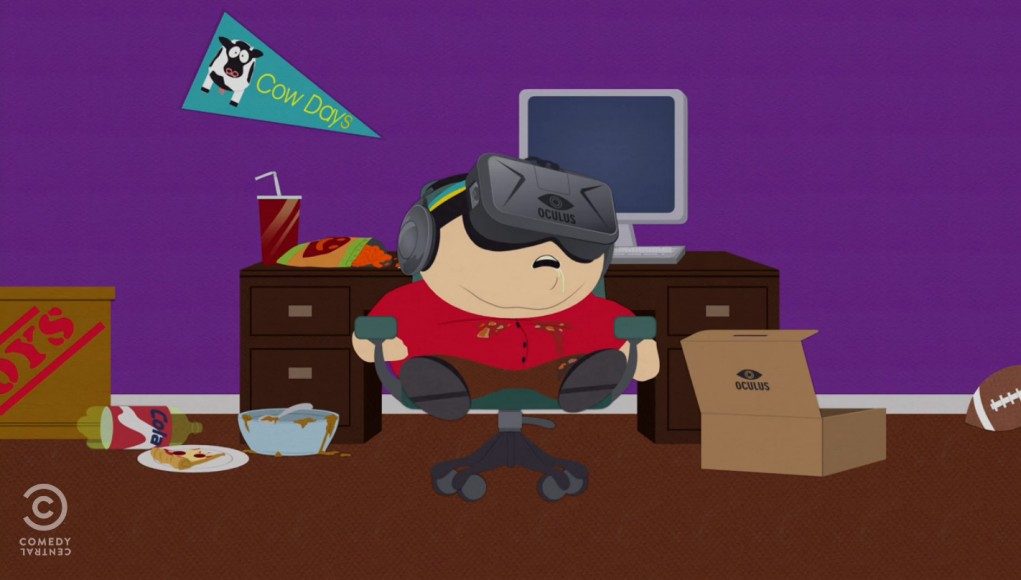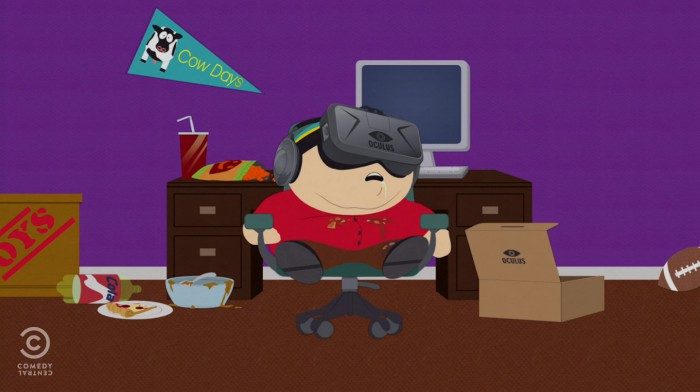South Park’s episode last week, Grounded Vindaloop, has zeroed in on the beloved Oculus Rift, along with some longstanding fears surrounding virtual reality. The episode, which dives into a meta virtual reality, also pokes fun at outsourced customer service. If you missed the episode, it’s available in full right here.
The show has definitely taken a different direction in the past few seasons, becoming arguably one of the most important vehicles for social commentary of our time. While South Park has addressed all manner of pressing issues, like the rash of insubstantial startup companies currently plaguing crowdfunding platforms like Kickstarter, or the destructive nature of Black Friday consumerism—it’s surprising they’ve bestowed the VR community with their badge of honor so soon.
This time the boys have gotten their hands on the ‘Oculus’, an obvious parody of the DK2, and find themselves individually confronted with the dilemma of whether they are indeed in the real world, or still trapped in a recursive virtual universe and left zombified at their computer chairs. Which level of the simulation is real, and for whom?
Although the Oculus Rift was prominently strapped to Cartman’s face while in mid ‘cheesy-poof’ induced stupor, the threat of an otherwise healthy individual succumbing to hyperreality (the inability of consciousness to distinguish reality from a simulation of reality) remains a stark improbability given the current level of technology. Palmer Luckey, founder of Oculus, maintains that “we’re [still] a long way away from being able to wake up and wonder if we’re in a virtual world or the real world,” and he’s right, so long as we’re not already living in a virtual reality world without knowing it.
There’s no telling what the future might bring us though. With the increasing level of in-game detail combined with the addition of clever peripherals, like haptic controllers, omnidirectional treadmills, and any number of unforeseeable sense-fooling gadgetry, the possibility of slipping ever farther down the rabbit hole—not to mention triggering psychosis in vulnerable people—could become very real.
A recent study published from the Department of Personality, Assessment and Psychological Treatments at the University of Barcelona suggested however that VR “has been demonstrated to be a useful tool for treatment and rehabilitation of these [psychotic] patients,” and helps foster greater mental relationships with their surroundings. These sorts of ‘prescribed simulations’ could also allow us to better understand trigger mechanisms and help mitigate outbursts in the future. We might even develop a similar host of techniques to ensure that those of us without any specific mental illness keep a firm foot in the real world, meanwhile letting our wings soar unabated in VR.








